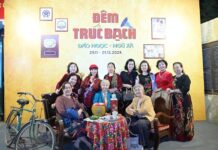Meeting the criteria of being feminine, gentle, yet tough and thorny, Lieutenant Colonel Nguyen Thi Lien stands out as a remarkable female soldier of the 1st Engineering Team in the Vietnam Department of Peacekeeping. She successfully completed the United Nations peacekeeping mission in South Sudan, Africa.
Taking on any challenging engineering tasks
Setting aside her roles as a wife and a mother for a while, Lieutenant Colonel Nguyen Thi Lien, along with hundreds of her fellow Vietnamese blue beret soldiers, took part in peacekeeping missions to contribute to the development of humanity in South Sudan. Their remarkable presence has left a positive and lasting impression in the minds of international friends, serving as a testament to the dedication and professionalism of Uncle Ho’s soldiers over the past decade.
Lieutenant Colonel Nguyen Thi Lien, known as the Vietnamese steel rose, was appointed as one of the seven officers, and the second woman, assigned by the State President to carry out peace missions under the United Nations in Central Africa in 2019. Following that, she embarked on her second mission in South Sudan in 2022.
When asked about her decision to undertake a second mission, Lien shared, “Comrade Director Hoang Kim Phung (at the time) called me to the Department of Peacekeeping Operation and assigned me the task. When the Motherland calls my name, entrusts me with a task, and places its trust in me, there is no room for hesitation. I immediately decided to accept the task as a community mobilization officer.”
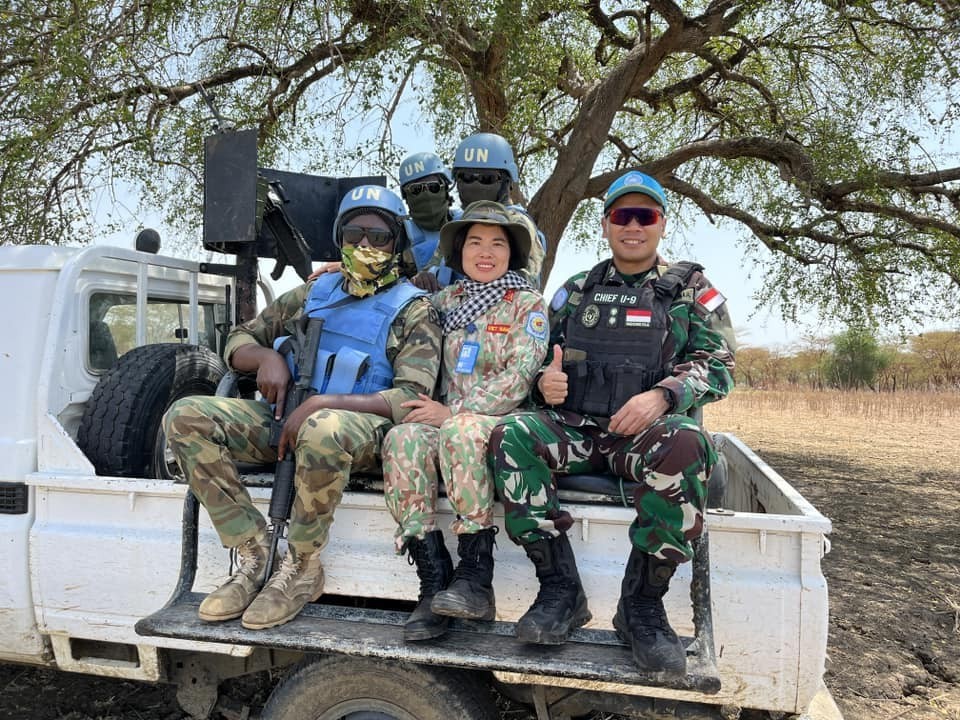 |
| Lieutenant Colonel Lien (middle) with blue beret soldiers. |
Lieutenant Colonel Nguyen Thi Lien and her teammates underwent comprehensive training in survival skills, specialized techniques, and advanced first aid. For the engineering forces, their safety training covered the usage of equipment and performing tasks in the field.
Lien and her teammates regularly participated in safety training sessions, focusing on machine operation, traffic safety, and more. Beyond theoretical lessons, they also encountered real-life situations, such as conflicts between indigenous people and ethnic groups.
“To ensure the safety of soldiers while working in the field, facing indigenous people and rioters, we often conduct campaigns, visit locals, create a friendly atmosphere, and establish connections with village elders. We strive to depict the image of Vietnamese soldiers, emphasizing to the local people: ‘These are Vietnamese army soldiers, specifically Vietnamese engineer soldiers who will offer assistance to the local population in various areas.’ Moreover, there are other risks involved, such as the possibility of encountering bombs and bullets during riots,” Lieutenant Colonel Lien explains.
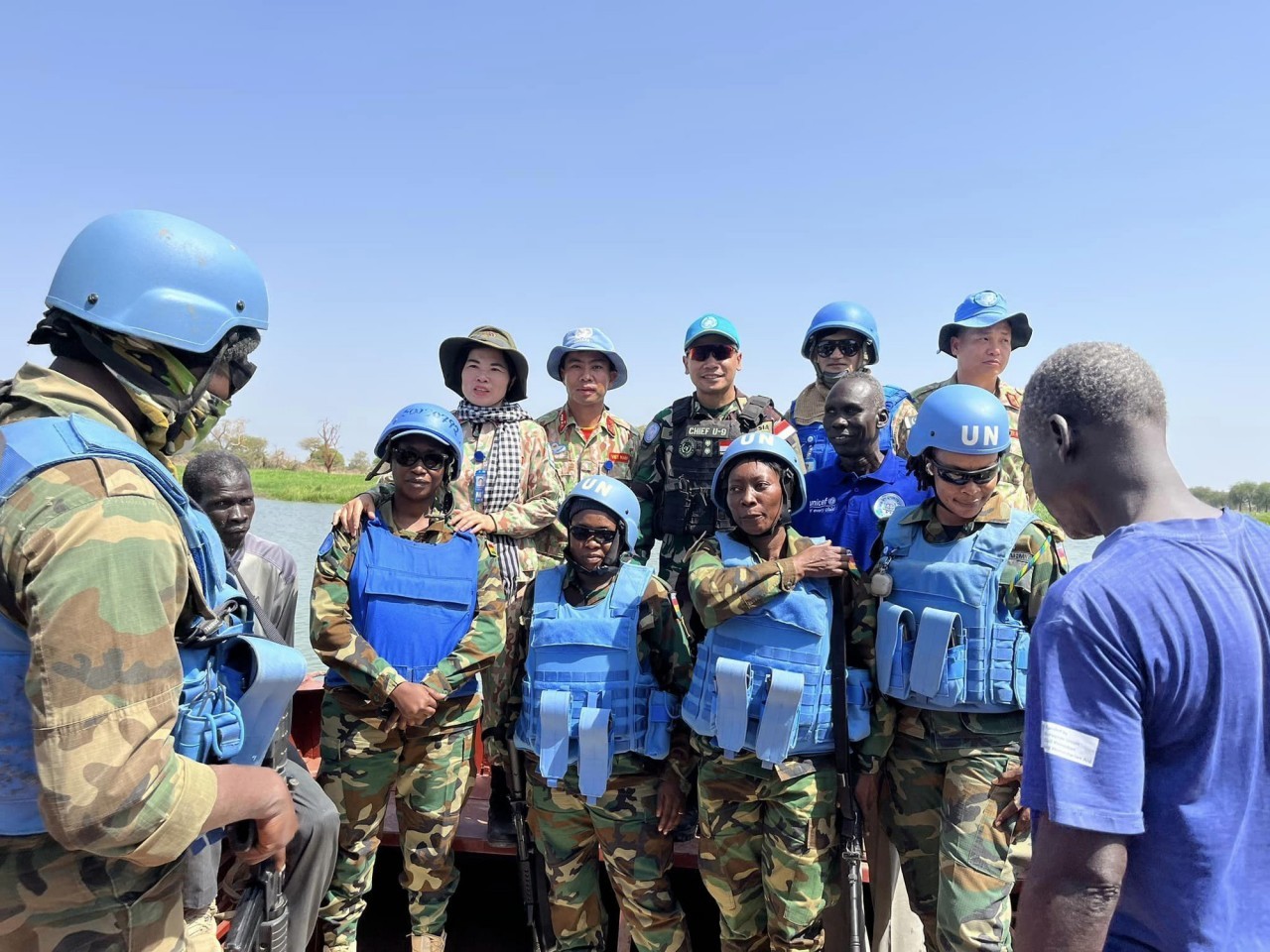 |
| Lieutenant Colonel Lien in South Sudan. |
Embraced by the local people, Uncle Ho’s soldiers gain affection
During their enduring journey in a region rife with political instability, the courageous Vietnamese soldiers, bearing the spirit of Uncle Ho, have made a profound impact on the local population. These engineering soldiers fear no challenges or hardships. They have taught the indigenous people how to cultivate crops and engage in agricultural activities, supported the building of roads and schools, and become mentors for children in South Sudan’s disadvantaged areas.
However, their mission was not without difficulties, starting with the contrast in lifestyles and customs. Lien remarks, “Due to the lack of electricity at night, we could only hold evening classes. Most of the locals don’t need sewing because they wear simple garments. Haircuts are unnecessary since everyone has short, curly hair.”
In a predicament where her initial plans failed to yield the desired results, Lien came up with the idea of starting a campaign to teach the locals how to grow green vegetables while tearing down an old spinach trellis and noticing people eagerly collecting each tiny leaf.
Like a spark ignited by the wind, within just one month, the local households began cultivating green vegetable gardens akin to those found in their homeland. Lien believed that cereals were the key to combating hunger. Soon, green vegetable and bean gardens sprouted across African soil, leading to their given name, “Lien Agri Cove – Green Bean Lien,” coined by the local inhabitants.
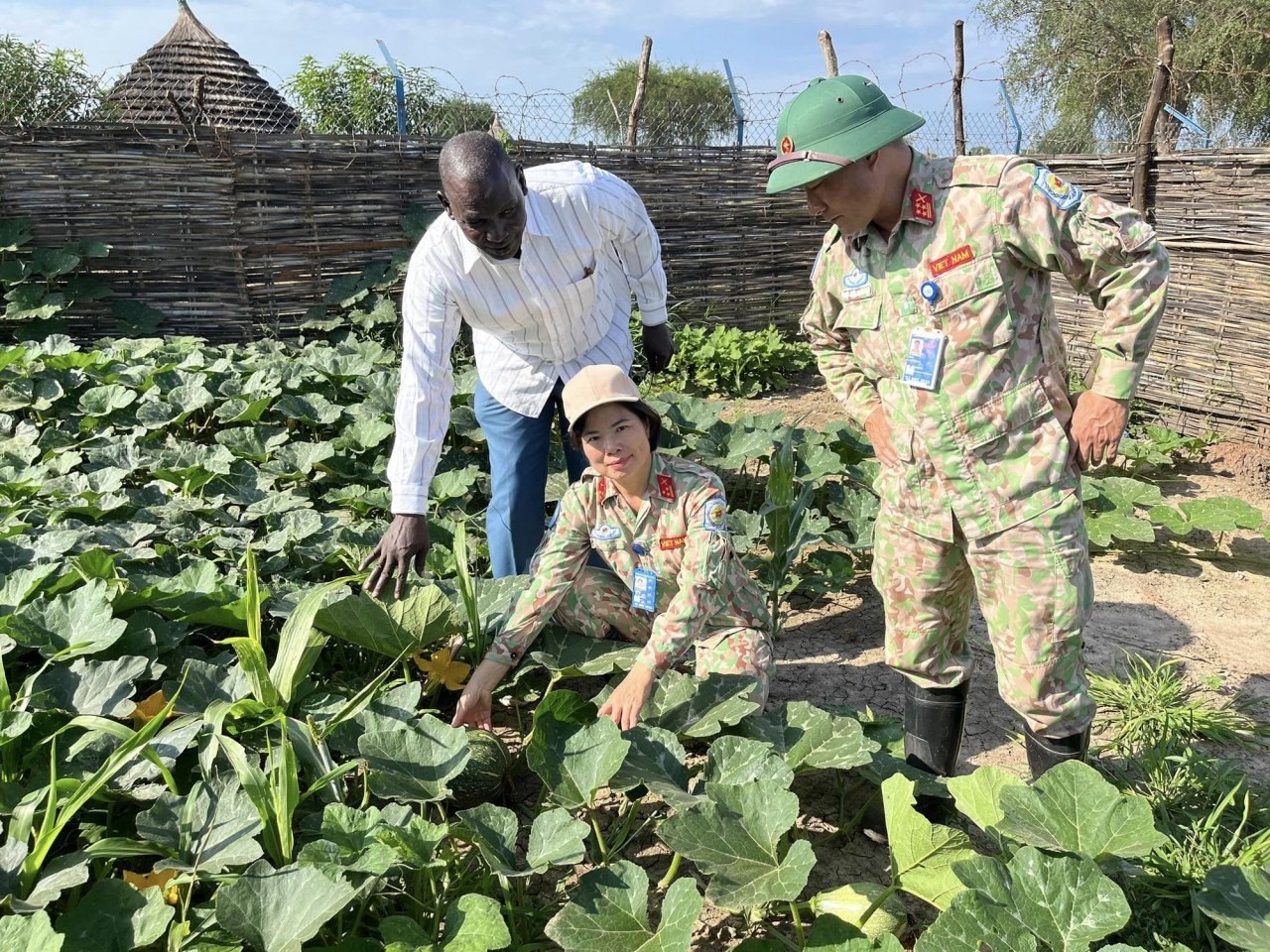 |
| Lien taught the local people how to grow green vegetables. |
Countless socio-cultural discrepancies separate Vietnam and South Sudan. To bridge this gap, the Vietnamese Army Corps of Engineers organizes cultural exchanges, striving to foster mutual understanding and celebrate traditional festivals from both Vietnam and Africa. Lien confidently states, “While cultures may differ, human minds share striking similarities. Once minds connect, cultural assimilation becomes effortless.”
Infused with a strong emotional bond, Lien and her teammates’ presence on every road and in every remote countryside represents an ongoing source of encouragement and support for the children and people of South Sudan. Despite the language barrier, the locals wholeheartedly refer to them as “Viet Nam,” expressing their genuine affection and love.
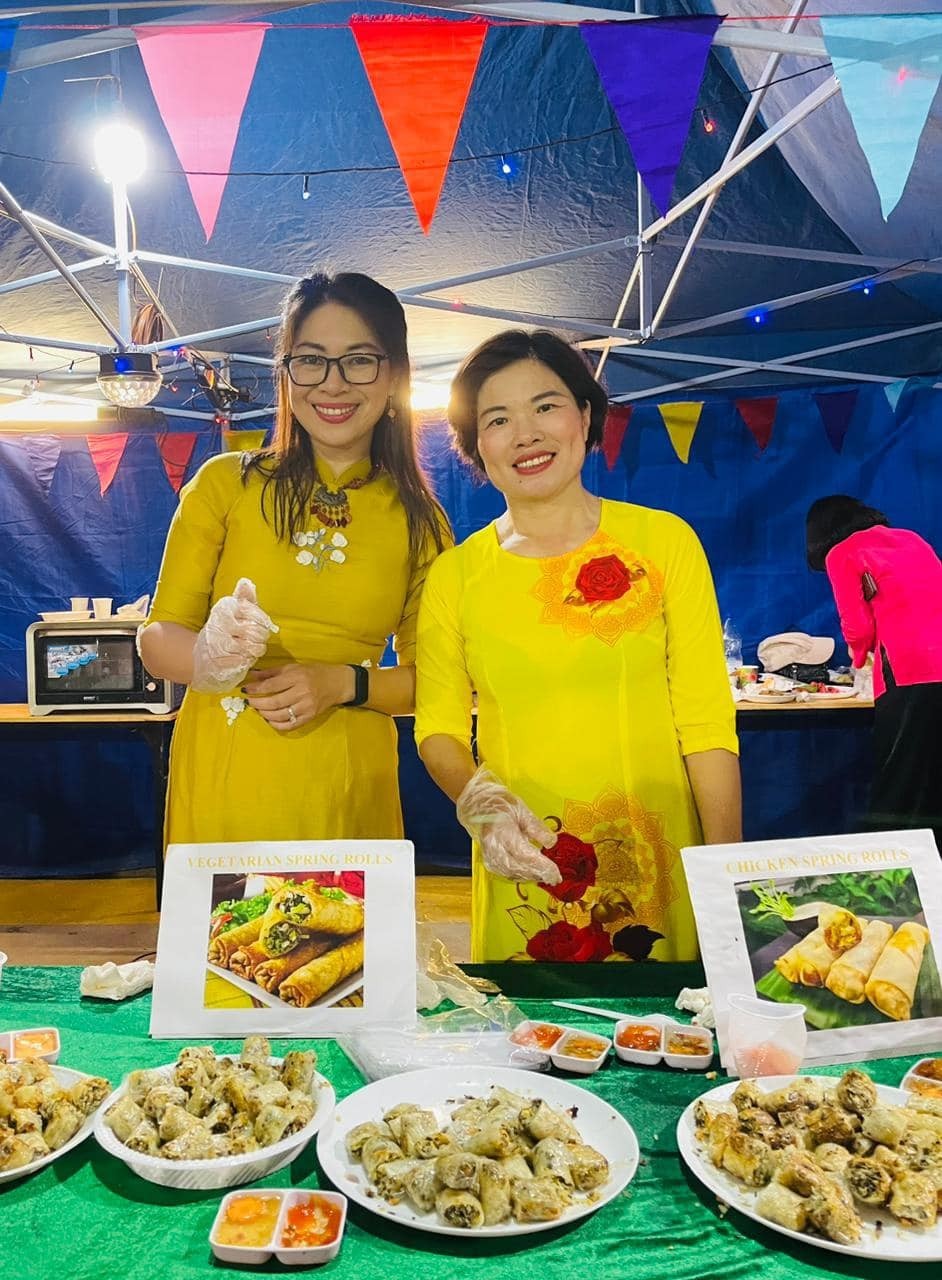 |
| Lien participated in introducing Vietnamese cuisine to Africa by making spring rolls. |
The Vietnamese national flag: A symbol of magic
Yet not all missions unfolded effortlessly. There were moments when Lien and her comrades confronted dangers in foreign lands.
Lien explains, “We had to spend a significant amount of time explaining and gaining clearance as we passed through the border station between South Sudan and Sudan. Although we traveled alongside soldiers from other countries, it was predominantly the Vietnamese soldiers who bore the responsibility of communicating with the locals. The word ‘Viet Nam’ emblazoned across our uniforms became a talisman, ensuring our passage through every checkpoint.”
The Party, State, and Vietnamese army’s goal is to “pave the way to victory.” To fulfill this mission, each soldier plays an indispensable role.
As a community mobilization officer, Lien established her own objectives and devised plans from the very beginning, aiming to achieve optimal results for the indigenous people and simultaneously bolster the image of Vietnamese soldiers and the nation on the international stage.
Renovating classrooms, constructing libraries, teaching English, and providing information technology education to local children stand out as unforgettable projects for Lien and her fellow Vietnamese soldiers.
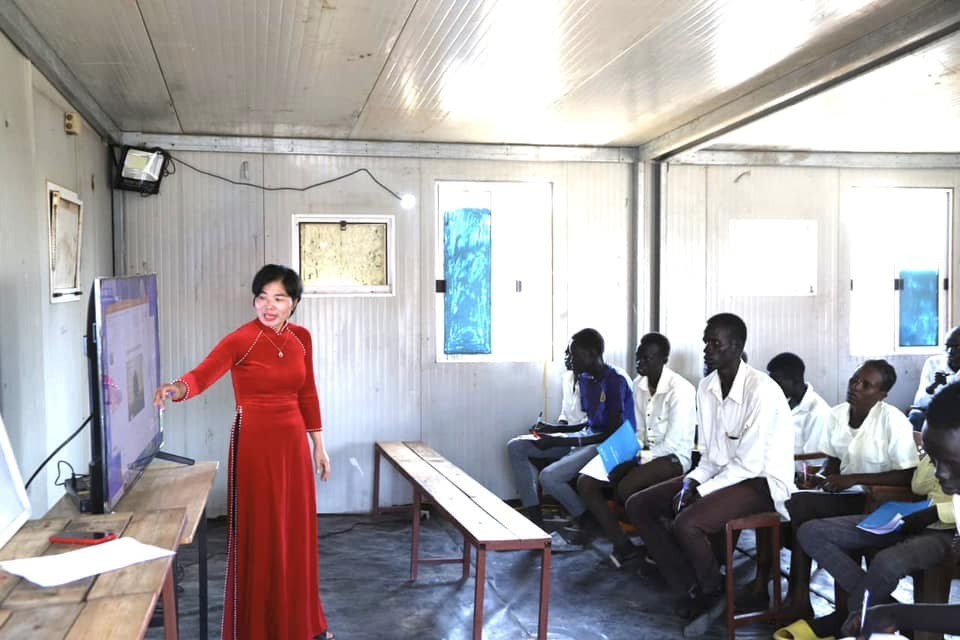 |
| Lien taught an English class to the African people. |
Through her mission in South Sudan, Senior Lieutenant Colonel Nguyen Thi Lien powerfully conveys her deep appreciation for the significance of maintaining peace and serving communities in challenging locations.
“To me, participating in peacekeeping operations and serving under the United Nations also entails protecting our homeland from afar and in advance. By demonstrating the courage and bravery of Vietnamese soldiers and Uncle Ho’s soldiers on the international stage, we prove the Vietnamese soldiers’ wholeheartedness in assisting indigenous people,” Lien shares earnestly.
Vietnam’s involvement in peacekeeping operations in South Sudan aligns with the Party, State, and Vietnamese army’s foreign policies and guidelines. The nation actively protects peace, refrains from engaging in military conflicts, and instead concentrates solely on humanitarian tasks and reconciliation efforts. In this treacherous war-torn land, Vietnamese blue beret soldiers have made valuable contributions to mitigating the aftermath of war for the country and its inhabitants.








